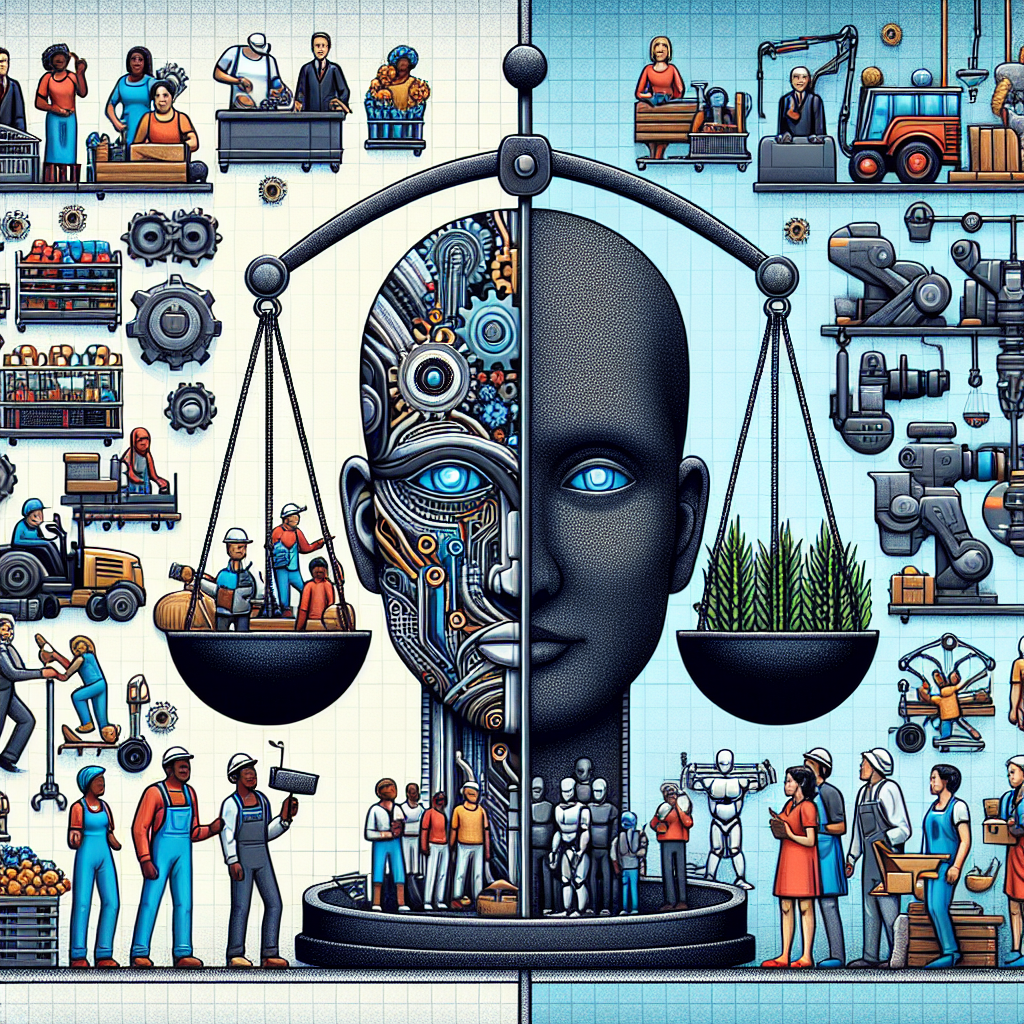Automation, the use of technology to replace or augment human labor in various industries, has been a topic of much debate in recent years. While automation can bring many benefits, such as increased productivity and efficiency, it also has significant economic implications that need to be carefully considered.
One of the most immediate impacts of automation is on the labor market. As more tasks are automated, there is a risk that some workers may lose their jobs or see their wages decrease. This can lead to increased inequality and a shrinking middle class, as those with the skills to work alongside automation thrive, while others are left behind. In addition, the displacement of workers can also lead to social unrest and political instability, as people feel left out of the economic system.
On the other hand, automation can also create new jobs and industries, particularly in the technology sector. By freeing up human labor from routine and menial tasks, automation can allow workers to focus on more creative and higher-value tasks. This can lead to innovation and economic growth, as companies become more competitive and efficient. In addition, automation can also lead to cost savings for businesses, as they can produce goods and services more cheaply and quickly.
However, the benefits of automation are not evenly distributed. Some industries and regions may benefit more from automation than others, leading to greater disparities in wealth and opportunity. This can exacerbate existing economic inequalities and lead to further social division. In addition, the transition to automation can be difficult for workers who are displaced, as they may lack the skills needed to participate in the new economy. This can lead to long-term unemployment and a decline in living standards for affected individuals and communities.
Another economic implication of automation is its impact on consumer behavior. As automation becomes more widespread, the price of goods and services may decrease, leading to lower inflation rates. However, this can also lead to deflation, as businesses cut prices to remain competitive. Deflation can be harmful to the economy, as it can lead to lower consumer spending and investment, and hinder economic growth. In addition, automation can also lead to changes in consumer preferences, as people may value goods and services produced by automation differently than those produced by human labor.
Overall, the economic implications of automation are complex and multifaceted. While automation can bring many benefits, such as increased productivity and efficiency, it also has significant drawbacks, such as job displacement and income inequality. It is important for policymakers and businesses to carefully consider these implications and take steps to mitigate the negative impacts of automation on workers and society as a whole.
FAQs
1. Will automation lead to mass unemployment?
While automation may lead to some job displacement in certain industries, it is unlikely to lead to mass unemployment. As new industries and job opportunities are created by automation, workers can transition to new roles and acquire new skills to remain competitive in the labor market.
2. How can workers prepare for the impact of automation?
Workers can prepare for the impact of automation by acquiring new skills and staying up-to-date with technological advancements in their industry. Lifelong learning and reskilling will be crucial for workers to adapt to the changing labor market and thrive in the new economy.
3. What role should policymakers play in regulating automation?
Policymakers play a crucial role in regulating automation to ensure that it benefits society as a whole. They can enact policies that promote worker training and education, support displaced workers, and ensure fair wages and working conditions in industries affected by automation.
